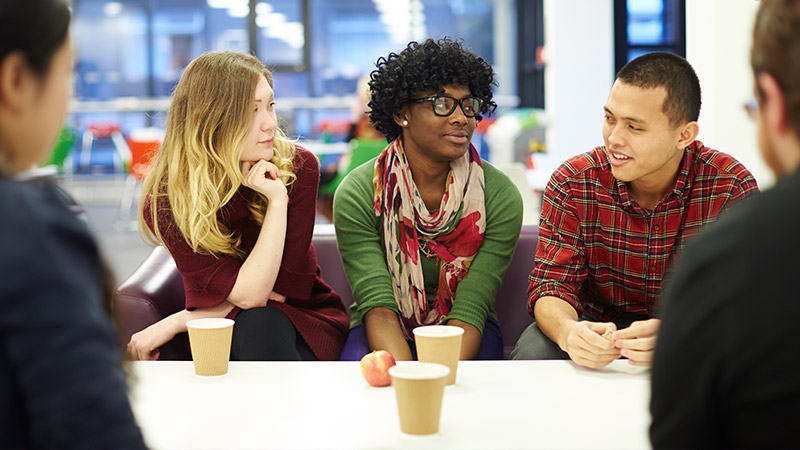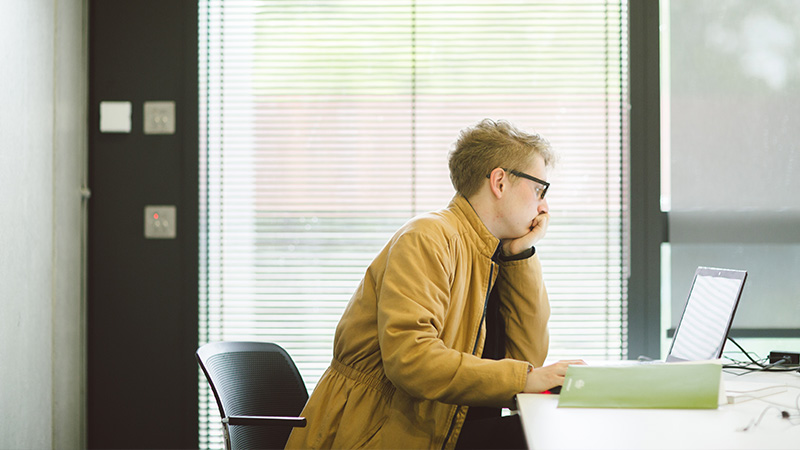Education (Childhood and Youth Studies)
MA
Start dates: September 2024 / September 2025
Full time: 12 months, Harcourt Hill Campus
Part time: Two/ three years depending on your chosen trajectory - part-time on campus or distance learning
Location: Abingdon & Witney College, Harcourt Hill, Distance learning
Department(s): School of Education, Humanities and Languages
Overview
Explore today’s children, youth and families - and develop your practice to value every child.
On this course, you’ll examine child and adolescent development in today’s economic, social, global and technological landscapes. You’ll examine key issues impacting children, youth and families - like:
- the role of the state in parenting
- the impact of policy on childhood experiences
- how children develop independence
- global approaches to education and care
You’ll develop a confident ability to support all the children you work with - whatever their needs. And you’ll be able to identify and employ evidence-based techniques to support each child.
You’ll explore your interests as a practitioner - whether that’s understanding the learning process, or developing children’s language skills. You’ll be exposed to different approaches - sparking new ideas for your own practice. And you’ll graduate with new insight into today’s children, youth and families - and the knowledge of how you can support them.

Course details
Study modules
You’ll study a total of nine modules. You’ll take two compulsory modules, including your dissertation. You’ll also take three optional modules chosen from:
- Childhoods in Context
- Learning and Development in Childhood
- Children's Imaginative Worlds
- Children's Literature through the Ages
- Working with Children, Young People and their Families
You’ll take two further optional modules. These can be selected from the full list of optional modules on this page, or from any of the optional modules on the MA Education Open Route - providing you meet the prerequisites.
Please note: As our courses are reviewed regularly as part of our quality assurance framework, the modules you can choose from may vary from those shown here. The structure of the course may also mean some modules are not available to you.
Research
The School of Education, Humanities and Languages is a thriving centre for educational research and teacher professional development. Students on master's level programmes therefore join a large research community comprising researchers at all levels of higher education study.
We hold two major research conferences each year - the School of Education Research Conference and the EdD Colloquium. All students are invited to attend our annual Research
Seminar Series (which attracts both internal and external speakers). We also organise a number of conferences, lectures, seminars and debates, some of which have an international reach.
The School’s six research groups exist to encourage engagement in research, publication, conference presentations, seminars and workshops:
- Inclusion and Wellbeing
- Policy, Partnership and Leadership
- STEAM pedagogy and learning
- Humanistic Perspectives on Education
- Early Years
- Applied Linguistics
View all staff profiles for School of Education, Humanities and Languages

Careers
You’ll graduate with confident knowledge of the theory, research and policy underpinning your practice. You’ll understand how different techniques work. You’ll be able to make decisive decisions in any situation. And you’ll be able to convincingly explain your approaches to school leaders, parents and others.
You’ll also be more sensitive to children, youth and families’ diverse needs. You’ll become adept at creating inclusive learning environments - where everyone feels they belong. You’ll have increased awareness of social services for children, youth and families. And you’ll understand how these services can enrich lives and help mediate difficulties.
Related courses
Entry requirements
Specific entry requirements
Normally you should have the following:
- English as your first language; or GCSE (grade 4-9) or O-level English Language (A-C); or IELTS (see English Langauge Requirements below).
- a relevant degree* or equivalent professional qualification
- some experience of working with children and/or young people.
*You may have an undergraduate background in any of a wide range of subjects including psychology, sociology, social and health care, education, history and anthropology.
Please also see the University's general entry requirements.
English language requirements
IELTS: Level 6.5 or above with a minimum of 6 in reading and writing and 5.5 in speaking and listening.
Please also see the University's standard English language requirements.
Pathways courses for international and EU students
We offer a range of courses to help you meet the entry requirements for your postgraduate course and also familiarise you with university life in the UK.
Take a Pre-Master's course to develop your subject knowledge, study skills and academic language level in preparation for your master's course.
If you need to improve your English language, we offer pre-sessional English language courses to help you meet the English language requirements of your chosen master’s course.
English requirements for visas
If you need a student visa to enter the UK you will need to meet the UK Visas and Immigration minimum language requirements as well as the University's requirements. Find out more about English language requirements.
Credit transfer
Terms and Conditions of Enrolment
When you accept our offer, you agree to the Terms and Conditions of Enrolment. You should therefore read those conditions before accepting the offer.
International qualifications and equivalences
How to apply
Application process
Tuition fees
Questions about fees?
Contact Student Finance on:
Tuition fees
Fees quoted are for the first year only. If you are studying a course that lasts longer than one year, your fees will increase each year.
The following factors will be taken into account by the University when it is setting the annual fees: inflationary measures such as the retail price indices, projected increases in University costs, changes in the level of funding received from Government sources, admissions statistics and access considerations including the availability of student support.
How and when to pay
Tuition fee instalments for the semester are due by the Monday of week 1 of each semester. Students are not liable for full fees for that semester if they leave before week 4. If the leaving date is after week 4, full fees for the semester are payable.
- For information on payment methods please see our Make a Payment page.
- For information about refunds please visit our Refund policy page
Additional costs
Please be aware that some courses will involve some additional costs that are not covered by your fees. Specific additional costs for this course are detailed below.
Optional costs
| Additional costs | Amount (£) |
|---|---|
It’s your responsibility to cover print / binding costs where coursework submission is required. Please note that a lot of the coursework is now submitted online. |
From £30 |
| You may choose to purchase books to support your studies. Many books on our reading lists are available via the Library, or can be purchased secondhand. | £20-60 per book |
Accommodation fees in Brookes Letting (most do not include bills) |
£94-265 per week |
Accommodation fees in university halls (bills included, excluding laundry costs) |
£122-180 per week |
Graduation costs include tickets, gowning and photography. Gowns are not compulsory but typically students do hire robes, starting at £41. |
Typically £0-200 |
Students are responsible for their own travel to and from university for classes. BrookesBus travel is subsidised for full-time undergraduate students that are on a course with a fee of £9,250 or more, or living in an Oxford Brookes hall of residence. There is an administration fee for the production of a BrookesKey. |
From £10 |
Funding your studies
Financial support and scholarships
Featured funding opportunities available for this course.
There are International Student Scholarships available for 2022 and other scholarships and funding options for postgraduate international students.
All financial support and scholarships
Programme changes:
On rare occasions we may need to make changes to our course programmes after they have been
published on the website. For more information, please visit our
changes to programmes page.

